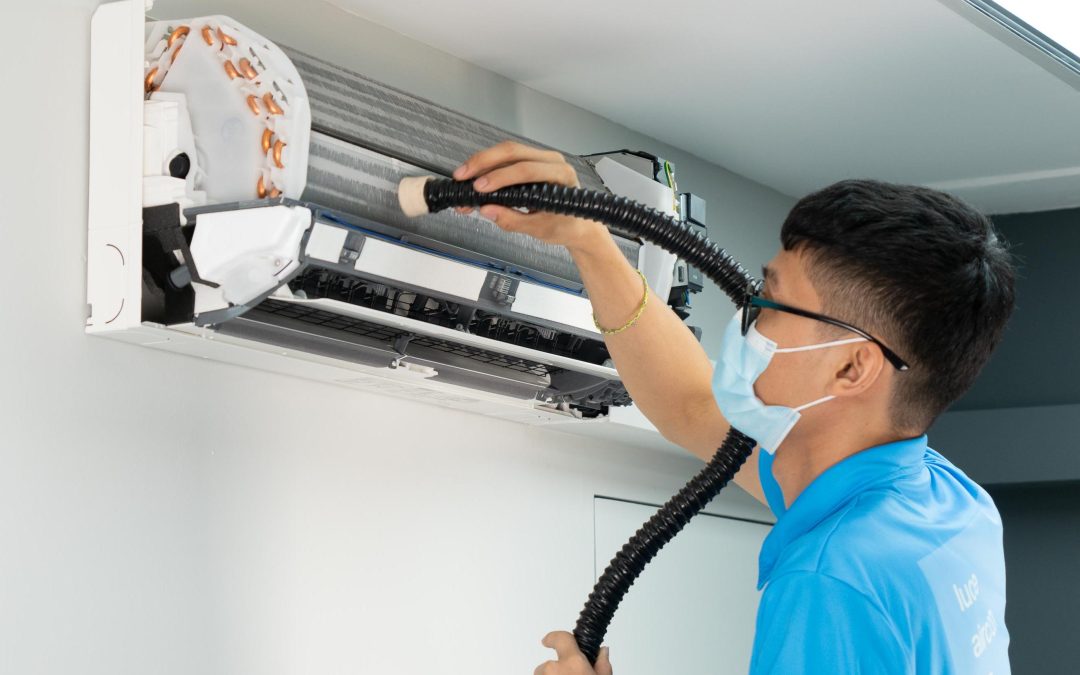Neglecting air conditioning maintenance and repair can lead to higher energy bills, decreased performance, and even health issues due to poor indoor air quality. This comprehensive guide to aircon services in Singapore aims to provide readers with an understanding of the various aspects of air conditioning maintenance, repair, and installation.
Types Of Air Conditioning Units
One of the most common types of air conditioning units in Singapore is the split system air conditioner. This unit consists of two main components – an indoor unit that blows cool air into the room, an outdoor unit that houses the compressor, and other mechanical components. Split system air conditioners are popular because they are relatively quiet, easy to install, and can be used to cool multiple rooms if necessary.
Another popular type of air conditioning unit is the window air conditioner. As the name suggests, these units are installed in a window and typically consist of a single unit containing all the mechanical components. Window air conditioners are generally less expensive than split system units but are also louder and less energy efficient.
For larger spaces, ducted air conditioning systems may be a better option. These systems use a network of ducts to distribute cool air throughout the space and are typically installed in ceilings or walls. While ducted systems can be more expensive to install than other types of units, they offer the advantage of zoned cooling, allowing you to adjust the temperature in different parts of your home or office.
Finally, portable air conditioners are also an option in Singapore. These units can be moved from room to room and typically comprise a single unit that houses all mechanical components. While portable air conditioners are easy to install and can be used in various spaces, they are typically less efficient than other units and may need to be more powerful to cool large spaces.
Air Conditioning Maintenance
Regular air conditioning maintenance is crucial to maintain your unit properly and efficiently. Neglecting maintenance can result in higher energy bills, decreased performance, and even health issues due to poor indoor air quality. Here are some of the different types of maintenance services available for air conditioning units in Singapore:
- Regular Cleaning: Over time, dirt, dust, and other debris can accumulate in your air conditioning unit, reducing efficiency and potentially leading to health issues due to poor indoor air quality. Regular cleaning of your unit’s filters, coils, and other components can help keep it running smoothly and efficiently.
- Refrigerant Level Check: The refrigerant is the substance that cools the air in your air conditioning unit. Over time, the refrigerant level can decrease, reducing cooling performance and potentially damaging the unit. Timely checks of the refrigerant level can prevent these issues.
- Electrical Connection Check: Your air conditioning unit’s electrical connections can become loose or corroded over time, potentially causing electrical problems or a fire. Regular electrical connection checks help ensure your unit is running safely.
- Fan Inspection: The fans in your air conditioning unit are responsible for circulating air throughout the space. Proper inspections of these fans can help prevent issues such as noisy operation, reduced efficiency, or even damage to the unit.
Air Conditioning Repair
Air conditioning units can experience various problems over time, especially in Singapore’s hot and humid climate. Here are some common air conditioning problems you may encounter:
- Refrigerant Leaks: Leaks in the refrigerant lines can cause the unit to stop cooling properly, leading to increased energy bills and potential damage to the compressor.
- Clogged Filters: Dirty or clogged filters can reduce airflow and cause the unit to work harder, leading to decreased efficiency and increased wear and tear.
- Electrical Issues: Faulty wiring, corroded connections, or other electrical problems can cause the unit to fail to turn on, overheat, or even cause a fire.
- Compressor Issues: The compressor is a critical component of your air conditioning unit, leading to poor cooling performance, increased energy bills, and potentially costly repairs.
When you encounter any of these problems, it’s important to seek professional repair services to prevent further damage to your unit. There are several types of repair services available, including:
- Troubleshooting and Diagnosis: A qualified technician can identify the cause of the problem and recommend the necessary repairs.
- Refrigerant Recharge: If your unit is low on refrigerant, a technician can recharge it to the proper level.
- Compressor Replacement: If your compressor is damaged or not functioning properly, it may need to be replaced.
- Electrical Repair: Faulty wiring or connections can be repaired by a qualified technician to ensure the safe operation of your unit.
Air Conditioning Installation
Regarding air conditioning installation in Singapore, choosing a reputable and experienced installer is important to ensure that your unit is installed safely and correctly. Here are some considerations for choosing an air conditioning installer:
- Licensing and Insurance: Check that the installer is licensed by the relevant authorities and has appropriate insurance coverage to protect you in case of any accidents or damage during installation.
- Experience and Reputation: Look for an installer with a proven track record of successful installations and satisfied customers.
- Product Knowledge: An experienced installer should have a thorough understanding of different types of air conditioning units and be able to recommend the best unit for your space and needs.
- Installation Process: A reputable installer should have a clear process for installation, including a detailed inspection of your space, proper sizing of the unit, and installation of the unit and associated components.
The costs associated with aircon installation in Singapore can vary depending on factors such as the unit’s type and size, the installation’s complexity, and any additional components needed (such as ductwork). Getting a detailed quote from the installer before proceeding with the installation is important to ensure that you understand the total cost and any potential additional charges.

